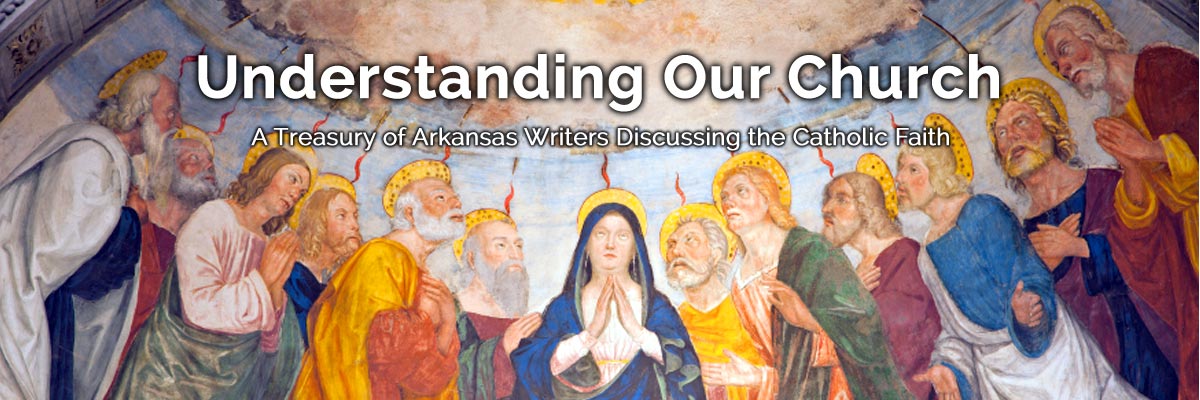Official Website of the
Catholic Diocese of Little Rock
Call no one 'father': Jesus warning about self-glorification, not a priest's title
Published: July 14, 2018
By Father Jerome Kodell, OSB
Subiaco Abbey
Catholics get nervous when they hear Jesus’ words about the use of the titles "rabbi," "father" and "master," especially this verse: “Call no one on earth your father; you have but one Father in heaven.” (Matthew 23:9) Some other Christians accuse Catholics of disobeying this mandate when they call priests father.
But Jesus’ admonition is against the false assumption of any kind of title or mark of respect for self-glorification, thus detracting from the primacy of God’s authority, in a very real way putting oneself in God’s place.
Jesus was not outlawing the title “father” in legitimate uses. He himself referred to the prodigal son’s parent as a father and quoted the commandment “Honor your father and your mother.” And he did not correct those who called him “Rabbi” or “Master.”
The reason for the disapproval of the use of the title “father” for religious leaders was political, not biblical. It is still not biblical. The injunction of Jesus to “call no man father” was against using titles for self-glorification, not against using them if they indicate roles of service.
St. Paul was unaware of any prohibition of the spiritual use of the title "father," telling the Corinthians: “I became your father in Christ Jesus through the Gospel” (1 Corinthians 4:15), and speaking of his relationship with Timothy said that “as a child with a father he has served along with me in the cause of the Gospel.” (Philippians 2:22)
The spiritual use of father was not questioned in the Church for centuries, and Jesus’ words were never invoked to cause question or concern about the practice. Early teachers were fathers of the Church and the revered spiritual guides of that generation were known as "Desert Fathers."
The more recent history of this usage and the backlash against it is illuminating. There was no difficulty about calling spiritual leaders “father” until the mid-19th century. During the 17th and 18th centuries and even into the 19th, some American Protestants regularly called their clergy “father” and “mother” without any qualms. For example, Father Mapple, who gave a famous sermon to sailors in the novel “Moby Dick” (1850), was a Methodist.
Meanwhile in the early years, U.S. Catholics often followed the usage of England, where until late in the 19th century, Catholic priests were called “mister.”
Protestants stopped using “father” and Catholics stopped using “mister” as a result of the great Irish immigration of the 1840s. Catholics in Ireland had been calling their priests “father” and brought that custom with them. Soon the title “father” replaced “mister” as the common usage of American Catholics.
Anti-Catholic sentiment at the time caused other churches to distance themselves from the title “father” in favor of “reverend,” “pastor,” “brother,” “preacher” and other titles.
So the reason for the disapproval of the use of the title “father” for religious leaders was originally political, not biblical. It is still not biblical. The injunction of Jesus to “call no man father” — or rabbi or master — was against using these titles for self-glorification, not against using them if they indicate roles of service, which is the practice of authentic fathers, rabbis and masters or teachers.
Jesus in fact gave the key to his meaning in what he said immediately after the passage in question: “The greatest among you must be your servant. Whoever exalts himself will be humbled, but whoever humbles himself will be exalted.” (Matthew 23:11-12)




